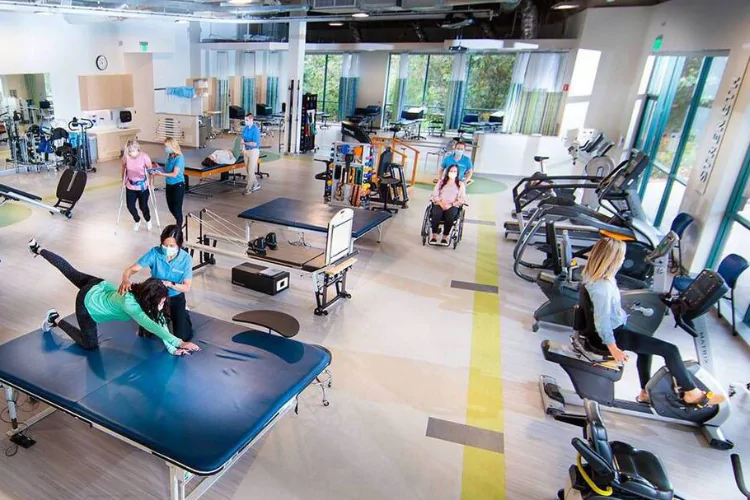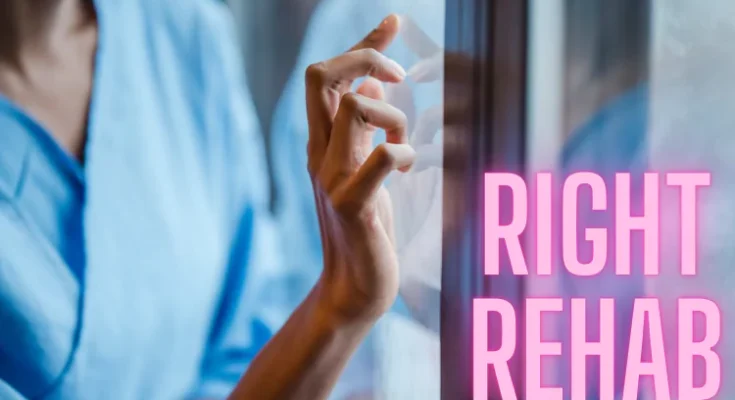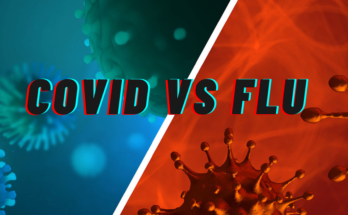Hey People! Selecting the best center for addiction treatment or mental health care is one of the most crucial decisions you will ever make for yourself or your loved one.
Due to the abundance of treatment centers and the diverse types of programs and approaches, rehab can be truly daunting. However, the choice of the right rehab center may greatly determine the success of the rehabilitation process.
However, by the end of this guide, you’ll have a proper understanding of what to expect and the best approach to enhance the possibilities of lasting recovery. Let’s begin.
Table of Contents
Picking Right Rehab Center is Important?

Some people who need help with addiction recovery or those seeking mental health treatment aren’t fortunate enough to have a simple experience. Individual clients may require assistance for a range of reasons depending on the level of their illness and mental health background, including if they have any concurrent mental health conditions.
Further, according to the Substance Abuse and Mental Health Services Administration (SAMHSA), about 9.5 million adults in the United States have co-occurring mental illness and SUD. Therefore, the client needs a dual diagnosis plan.
Choosing a rehab that aligns with your treatment needs can affect several factors, including:
The likelihood of long-term success: The correct rehabilitation center will provide a personalized recovery plan.
Your overall well-being: The right environment benefits physical detox and emotional and psychological purification processes.
Support through the aftercare process: Rehab is just the first step. A center’s aftercare program assists in reducing relapses among patients after treatment.
Selecting a Rehab Facility

Treatments and Programs
There are many types of treatment in different rehabs, and choosing the right one will determine the outcome. While some centers offer conventional, standardized forms of treatment, other centres may employ complementary or even complementary forms of treatment.
Expert advice for success recommends evaluating the specific treatment options a rehab center offers:
Cognitive Behavioral Therapy (CBT): This type of therapy is evidence-based and involves teaching a patient to alter the negative way of thinking and behaving that relates to addiction.
Dialectical Behavior Therapy (DBT): DBT is useful for clients with high levels of emotional BPD or other trauma-related disorders.
12-Step Programs: Facilities that use programs such as AA or NA may provide structure and fellowship that are often lacking in inpatient centers.
Holistic Therapies: Most facilities currently provide other comprehensive forms of treatment, including yoga, meditation, acupressure, art therapy, and horse riding therapy. These therapies are designed to treat the patient’s mental and physical condition because they work to cure the client emotionally and literally.
The selection of a center that shares a patient’s preference of treatment can help increase patients’ interest in therapy, thereby promoting organic healing.
Level of Care: Outpatient Versus Inpatient Rehabilitation
When choosing a rehab, one of the first questions to consider is the type of program required: inpatient (residential) or outpatient treatment. Both are different in that they have different pros depending on whether you need them for yourself or the severity of the illness.
Inpatient Rehab: Refers to treatment where clients spend some time in the rehab center, usually 30-90 days. Inpatient rehabilitation is suitable for people with severe addiction or mental illness disorders. The clients are offered constant care, and the environment is removed from the individual’s everyday milieu, which can help avert stimulation and interference.
Outpatient Rehab: Other treatment services that are available involve the clients living at home but attending the treatment sessions during the day or in the evening. This type of program is most effective for individuals who have relatively mild cases of substance dependency or for those who may have left inpatient care but are requiring more intensive outpatient treatment.
Expert advice for success: If you remain confused about what type of care you require, try getting an online consultation with a licensed healthcare provider who can properly assess the problem and suggest the right type of care to choose.
Accreditation and Licensing
Ask if the rehab center you choose is certified by this or that organization; such accreditation means that the facility meets a high level of patient treatment. The Joint Commission and CARF, standing for the Commission on Accreditation of Rehabilitation Facilities, are among the most well-known types of accreditation in healthcare.
Besides accreditation, ensure the required state or local department authorizes the facility. A licensed rehab center means that it operates with some fundamental requirements that ensure it delivers quality services and sets legal standards that must be adhered to.
Selecting a licensed and accredited rehab center means that you will undoubtedly get care from an ethical and medically sound organization.
Qualification and Experience of the Staff
The background of the treatment staff is very important in major aspects of the patient’s care. A good rehab center will employ qualified professionals with experience in addiction treatment and mental health care, including:
Licensed Therapists: Therapists with postgraduate degrees in CT/ CBT, systemic family therapy, trauma, and other related fields.
Certified Addiction Counselors: These counselors have completed the required extra education to lead substance use treatment sessions.
Medical Professionals: Medical doctors who can control medical detox, prescribe entitlements for patients, and oversee medication during treatment.
Expert advice for success: It is important to ensure that one does research on the personnel and qualifications of the professionals in the rehab center of one’s choice. This will guarantee that the quality of the treatment is the best and based on research to inform practice as practitioners embrace the issues of substance use disorders.
Cost and Insurance Coverage
The cost is usually considered when choosing a rehab center; therefore, the cost has to be reasonable. However, it is pleasant to note that most centers make arrangements for the patient to pay the insurance companies so as to get the amount equivalent to the cash value that is to be paid for the treatment.
Many insurance service companies like Aetna, Blue Cross Blue Shield, and United Healthcare include treatments of substance use and mental health disorders in their coverage.
You should also ensure whether the rehab center is willing to accept your insurance and be aware of what your cost is going to be. Some centers can provide you or your loved one with a partial payment for your stay if insurance does not cover rehab or if you have no insurance.
Expert advice for success: If you have doubts about what your insurance will cover, it is advisable to contact the targeted rehab center or consult an insurance expert so that you can know what you are likely to pay.
Aftercare Support and Work with Alumni
Recovery is not over the minute rehab is finished. To make sure that the client does not relapse and stays clean permanently, it is important to have some form of aftercare. Look for rehab centers that offer a comprehensive aftercare program, which may include:
Sober Living Homes are Shelters where people can find a place to live after getting out of rehab and transitioning to independent living.
Support Groups: Account for regular sources of ongoing support, for example, regular meetings or groups, including 12-step programs.
Outpatient Therapy: Taking follow-up therapy or counseling sessions after haleavingehab to reunite yourself with the right track towards your recovery.
Different studies have also found that aftercare enhances the probability of the person staying clean after passing through rehab. An NIDA (National Institute on Drug Abuse) research reveals that individuals who attend post-rehabilitation treatment are fifty percent less likely to slip back to drug use than patients who receive no such follow-up.
Environment and Location
As mentioned, the location of a rehab center can affect your recovery process in one way or another. Rehab, if done away from home, can help reduce the temptation and urge to give in to accustomed triggering factors, though it may be necessary to stay close to family and friends.
Moreover, the facility’s environment plays a key role in the realization of the program. The quiet and calm atmosphere can contribute to recovery, while the noisy and more titular one may be good for those who need some schedule or like organizing their days in groups.
Expert advice for success: You should give considerable attention to choosing the place to start a rehab center. Whether you live in a rural or urban area, be certain that the environment fits your desired lifestyle.
Parent/Family Re/Engagement
The center of the recovery process is the family’s involvement. Almost all the rehab centers provide family therapy services where the family can learn about substance use disorders as well as mental health disorders and how to support the patient through their recovery process.
Numerous centers provide family therapy to ensure that all the problems affecting the relationships of the families have been solved because of addiction and other related situations that affect the mental and entire health of the family members.
It may sound strange, but people can be healed when families get across, change, or are even encouraged to participate.
The following video explains about Selecting a Rehab Facility:
Conclusion
Selecting the right rehab is a rather individual process, and the decision made plays a major role in overcoming addiction. It is possible to have a way to find yourself or your loved one on the path to lasting change with the right approach, the right information, and the commitment to getting treatment.
Recovery is a long process, and choosing the right rehabilitation center is the first step to beginning a new way of life. The encouragement and advice you receive throughout the process will prepare you for a much better life to come.
FAQ
1. How can one determine between inpatient or outpatient rehabilitation services?
If you have severe dependence, dual diagnosis, or you are unable to sustain recovery without medical supervision, inpatient rehab may be indicated for you. Outpatient treatment is ideal for people with mild substance use disorder or those who still have responsibilities to attend to in their homes.
2. Is rehab treatment going to be funded by insurance?
Most rehab centers are insured or admitted insurance into their institutions to cater to their patients. You need to check whether the insurance company that you have will cater to your addiction treatment or mental health. The insurance information can also be verified with the rehab center’s admissions to clarify which insurance they accept at the center and the amount of coverage available.
3. Subsequently, let us discuss how long rehab usually takes.
Different programs dictate the periods of rehab; however, most reclamation usually takes a couple of months. Residential rehabilitations typically last between 30 and 90 days, though the process can sometimes be longer. Outpatient programs can take several months, and this depends on the person’s progress.
4. Can my family join the recovery process?
Yes! Most rehab facilities have family therapy and counseling sessions, where the family of the person with an addiction is taken through several programs dondebedonedisjointedly.




